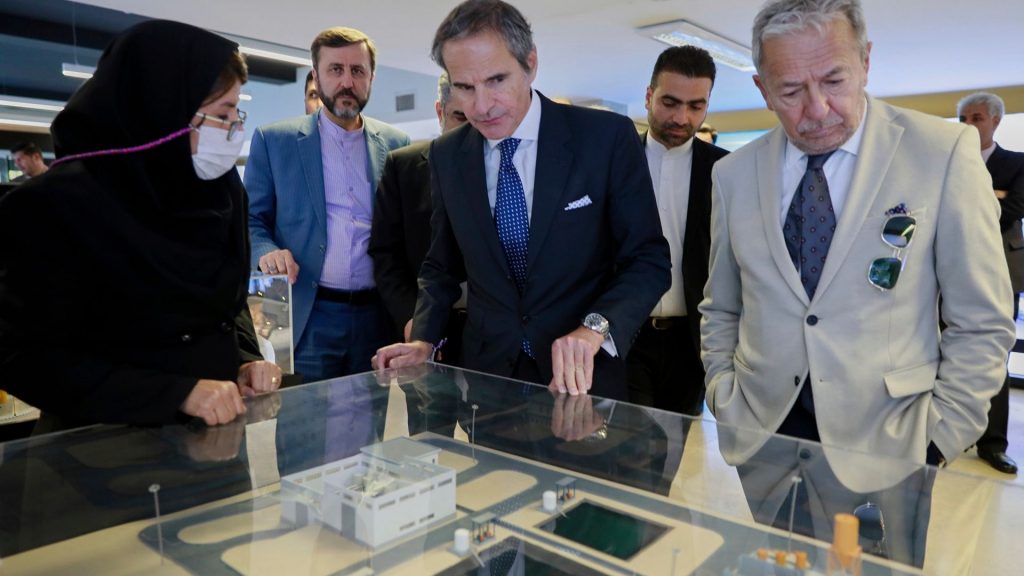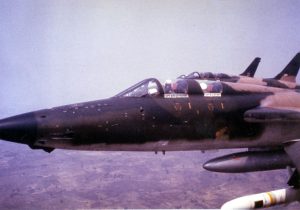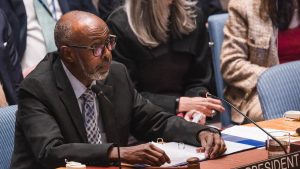IAEA report on Iran’s nuclear program deemed ‘damning’ and ‘not revelatory’

Various media outlets received a confidential report by the International Atomic Energy Agency (IAEA) on the past, present and future state of Iran’s nuclear program. While some called it “damning,” others say there’s nothing “revelatory” about it.
The report, issued Saturday, May 31, was commissioned by the IAEA’s 35-nation Board of Governors last November.
What exactly does the IAEA report say?
In short, the report found that Tehran had housed undisclosed nuclear materials at three of the four sites the report was tasked with investigating, including Lavisan-Shian, Varamin and Turquzabad. Those sites, the IAEA said, “were part of an undeclared structured nuclear programme carried out by Iran until the early 2000s,” adding, “some activities used undeclared nuclear material.”
In particular, the report notes that at one site, a uranium metal disc was “used in the production of explosively-driven neutron sources” in 2003, which could be used as a catalyst to explode a nuclear weapon, Reuters reports. Additionally, the program’s nuclear material and/or heavily contaminated equipment were reportedly stored at another site between 2009 and 2018.
However, as the nonpartisan Arms Control Association (ACA) notes, the report also stated that there are “no credible indications of [an] ongoing, undeclared structured nuclear programme.”
No significant developments since 2003
What isn’t disputed is the fact that the undisclosed nuclear materials are connected with Iran’s previous attempts to enrich uranium to weapons-grade levels, thus contravening its obligations under the Nuclear Nonproliferation Treaty of 1968. However, the report does not point to continued efforts or an ongoing, secret nuclear initiative, which Iran abandoned in 2003.
U.S. Director of National Intelligence Tulsi Gabbard confirmed as much in a March 26 speech to the House Permanent Select Committee on Intelligence, saying, “The [intelligence community] continues to assess that Iran is not building a nuclear weapon and Supreme leader Khomeini has not authorized the nuclear weapons program that he suspended in 2003.”
Since then, Iran has not completely shied away from a nuclear program. But the country maintains it is solely in service of peaceful, civilian uses, including energy production.
“If the issue is nuclear weapons, yes, we too consider this type of weapon unacceptable. We agree with them on this issue,” Iranian Foreign Minister Abbas Araghchi recently said of ongoing nuclear negotiations with the U.S.
In a separate report shared with the Board of Governors on Saturday, the IAEA said Iran’s stock of uranium enriched by upwards of 60% has doubled since February. Once Uranium is enriched to 90%, it is considered weapons-grade. The 408.6 kilograms currently in Iran’s possession would be enough to build nine nuclear weapons, Reuters reports.
IAEA says it’s concerned, Iran says agency is politically motivated
The IAEA said that it is “of serious concern” that Iran is the only country without nuclear weapons but enriching its stockpile at such a rate.
Iran, meanwhile, disputed the findings in the report and called its publication politically motivated. “The Islamic Republic of Iran, while expressing regret over the publication of this report, which was prepared for political purposes through pressure on the agency, expresses its clear objection to its content,” the Iranian Foreign Ministry said in a statement.
The IAEA criticized Iran’s cooperation with the international agency as “less than satisfactory” in a “number of respects.” Should they choose to, the U.S., Britain, France and Germany could rule that Iran is in violation of its obligations under a 2006 non-proliferation treaty and refer the country to the United Nations Security Council.
Washington, Tehran’s ongoing talks
The report comes at a time when Tehran and Washington have been locked in some of their most serious nuclear talks since President Donald Trump, during his first term in 2018, walked away from the Iran nuclear deal brokered by then-President Barack Obama.
While those talks are currently in a holding pattern, Araghchi said he met with Omani Foreign Minister Badr al-Busaidi on Saturday. Busaidi, who’s serving as a mediator in the nuclear negotiations between Tehran and Washington, reportedly presented elements of a U.S. proposal for nuclear disarmament.
Details for the next round of talks are yet to be disclosed.





